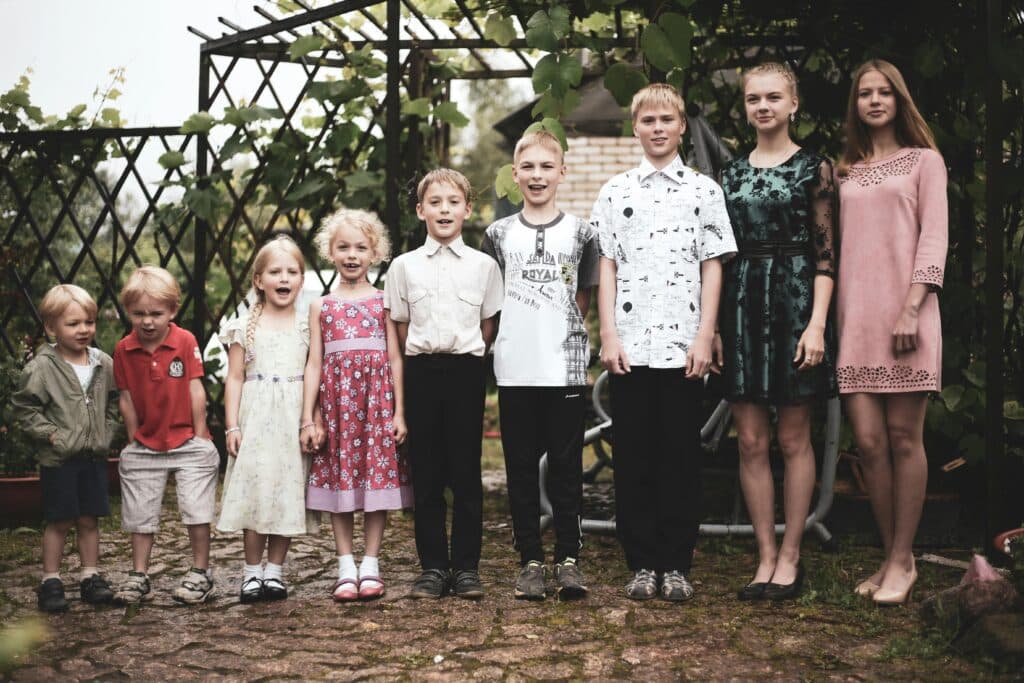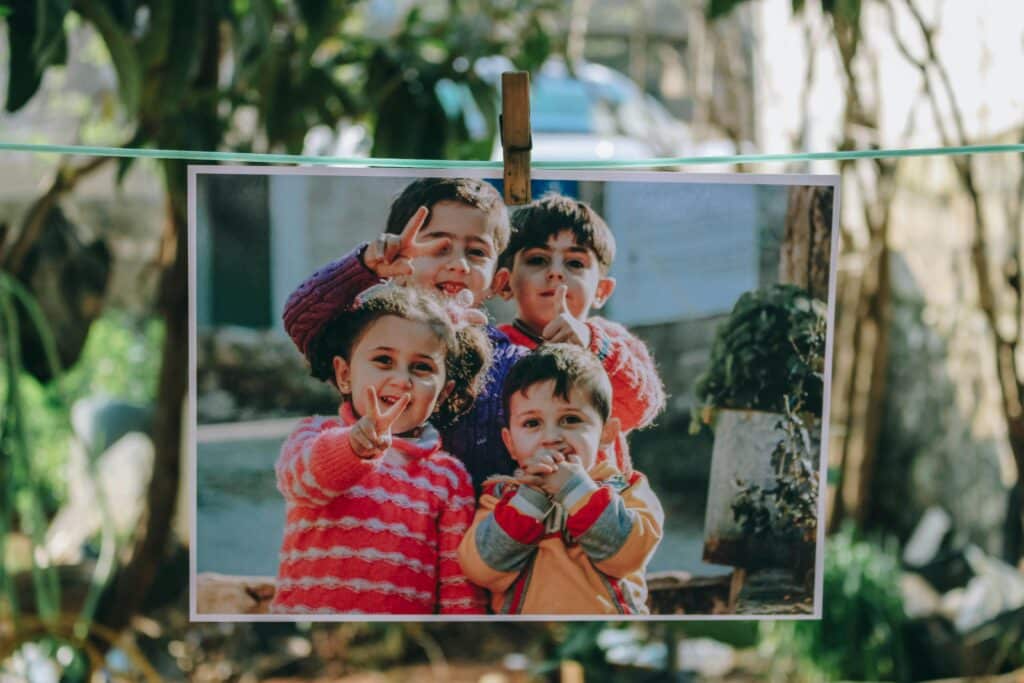Understanding Sibling Rivalry
Sibling rivalry means when brothers and sisters argue, fight, or feel jealous of each other. It’s something many families deal with. If you’re a parent, you may notice your kids competing for your attention, fighting over toys, or feeling left out. That’s sibling rivalry.
This rivalry can happen at any age. Even an infant might cry more when a new sibling arrives. As children grow, their feelings change. They might feel anger, jealousy, or frustration toward each other. That’s normal—but there are ways to help them get along better.

Nashville Mental Health
Why Do Siblings Fight?
Siblings fight for lots of reasons. Sometimes it’s about wanting more attention from a parent or feeling like things are unfair. Other times, it might be about toys, space, or just different temperaments—which means how calm or active each child is.
Let’s look at some reasons why sibling rivalry happens:
- Jealousy: One sibling may feel jealous if the other gets more praise or time with a parent.
- Competition: Kids may try to outdo each other in school, sports, or at home.
- Personality differences: Some siblings are loud and active. Others are quiet and like to be alone.
- Birth order: Older kids may feel responsible, while younger ones want freedom.
- Gender: Boys and girls might have different interests or feel they are treated differently.
- Divorce or single parenting: Big changes can make children feel confused or act out.
- Lack of sleep or poor nutrition: Tired or hungry kids can become cranky fast.
How Sibling Rivalry Affects the Family
Sibling rivalry can cause stress in the family. It might lead to daily arguments, yelling, or even bullying. Sometimes, it affects a child’s mental health. Constant fighting can make home feel unsafe or unhappy.
Aggression, name-calling, or even physical fights may happen if rivalry grows. That’s why it’s important to spot the signs early and use good tools to help.
Some signs that rivalry is becoming a bigger problem:
- One child always feels left out
- A sibling becomes very quiet or angry
- Fighting leads to crying or hitting often
- You feel stressed or confused as a parent

What Parents Can Do About Sibling Rivalry
You can help! Parents play a big role in teaching kids how to get along. Here are some ways to manage sibling rivalry:
1. Listen to Both Sides
Let each child explain how they feel. Don’t always pick a side. Communication is key!
2. Set Clear Rules
Make rules about fighting, sharing, and being kind. When kids know what’s okay and what’s not, they act better.
3. Be Fair, Not Equal
Being equal means giving the same to everyone. But being fair means giving what each child needs. One child may need more discipline or more help with school.
4. Avoid Comparisons
Don’t say things like, “Why can’t you be more like your brother?” This hurts the sibling relationship. Each child is different.
5. Praise Good Behavior
When kids play nicely or solve a problem, notice it! Praise teaches kids what to do.
6. Give Each Child Time
Spend one-on-one time with each child. It makes them feel special and lowers jealousy.
7. Teach Problem Solving
Help kids learn how to fix fights themselves. Ask questions like:
- “What do you think is fair?”
- “How can we fix this?”
- “What can we try next time?”
How Therapy Can Help
If rivalry is hurting your family a lot, therapy can help. A family therapist helps everyone talk, understand feelings, and find better ways to handle fights.
Therapy is also helpful if a child is showing signs of stress, aggression, or mental health problems. Talking to a health expert makes a big difference.
Building a Strong Sibling Relationship
A good sibling relationship helps kids feel loved and supported. They learn social skills, conflict resolution, and how to care for others.
Here’s how to build strong sibling bonds:
- Exercise together as a family
- Play games that require teamwork
- Encourage older siblings to be a role model
- Celebrate each child’s success
- Include extended family like grandparents to support bonding
- Use coping strategies when emotions run high
- Create routines for bedtime, nutrition, and playtime
Nashville Mental Health
Teaching Conflict Resolution
Conflict happens—even between adults! Teaching kids conflict resolution means helping them talk, listen, and solve problems. Here’s a simple way to teach it:
- Stop and cool off – Take deep breaths
- Say how you feel – “I feel sad when you…”
- Listen to each other
- Find a solution – “Can we take turns?”
- Try it out and see if it works
These steps build social skills and help kids feel heard.
When Rivalry Becomes Harmful
Sometimes sibling rivalry turns into abuse. This is serious. If one child is always mean, controlling, or hurting another, it’s more than just rivalry.
Warning signs include:
- Fear of being around a sibling
- Hiding bruises or injuries
- Name-calling that hurts deeply
- Controlling behavior
If this happens, parents must act fast. Talk to a mental health professional. Keep children safe. Set firm rules and get help.
Sibling Rivalry in Different Situations
Divorce and Single Parenting
Kids may feel confused, scared, or lonely during a divorce. They might take it out on siblings. Single parents can reduce rivalry by keeping routines and showing love equally.
Different Ages and Stages
A baby may need more space and care. Older siblings may feel ignored. Teach them how to help and praise their efforts. Developmental psychology shows that each age has unique needs.
School Stress
School brings pressure. Kids might compare grades or feel less smart. Remind them that everyone learns differently and success looks different for each child.
Helping Kids Cope With Rivalry
Here are simple ways kids can cope with rivalry:
- Write or draw their feelings
- Use exercise to release stress
- Read stories about friendship
- Get enough sleep
- Use calm-down tools like a “quiet corner” or breathing ball
- Talk to a mother, father, or adult they trust
When to Seek Help
If rivalry affects your child’s happiness, school, or health, it’s time to ask for help. Talk to your pediatrician, school counselor, or a therapist.
You are not alone. Many families go through this. With love, support, and the right tools, you can build a happy home where siblings get along.

FAQs About Sibling Rivalry
1. Is sibling rivalry normal?
Yes! Most siblings argue sometimes. It’s part of growing up and learning how to share, solve problems, and get along.
2. How can I stop my kids from fighting all the time?
Teach clear rules, listen to both sides, praise good behavior, and give each child time and attention. Be calm and fair.
3. When should I worry about sibling rivalry?
If one child is afraid, there’s bullying, or a sibling is always angry or sad, it’s time to talk to a doctor or therapist.
4. Can rivalry happen between very young kids?
Yes, even toddlers can show signs of jealousy. They may cry, act out, or want more hugs. It’s normal but needs gentle parenting.
Nashville Mental Health
5. What if I grew up with sibling rivalry and still feel hurt?
You’re not alone. Talking to a mental health expert can help you heal from past pain. Understanding it helps you parent better too.
Need help managing sibling rivalry in your home? You’ve got this! With patience, love, and clear rules, you can build strong bonds that last a lifetime. Contact us today or visit SAMHSA for more information.












